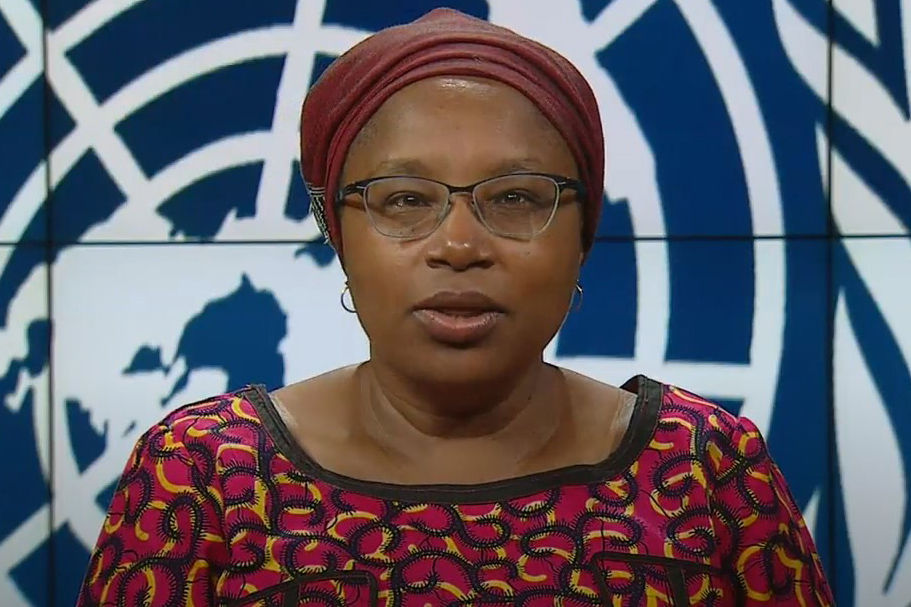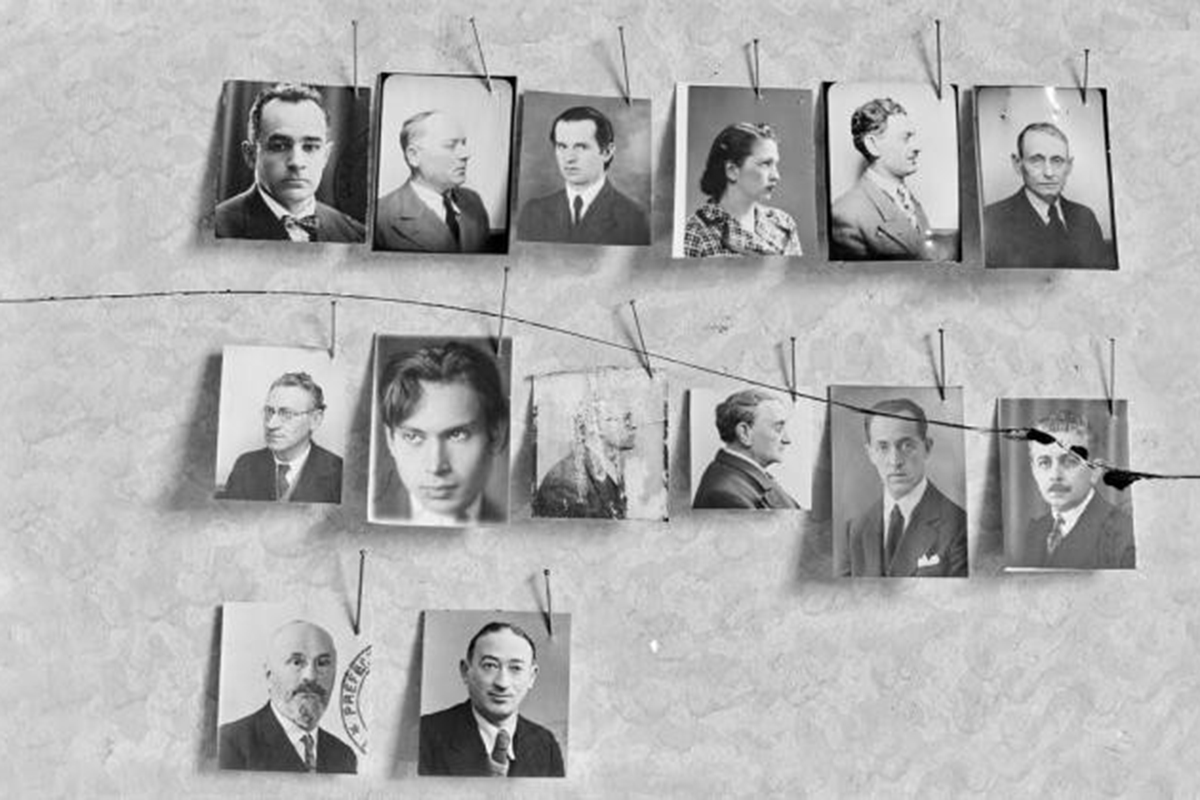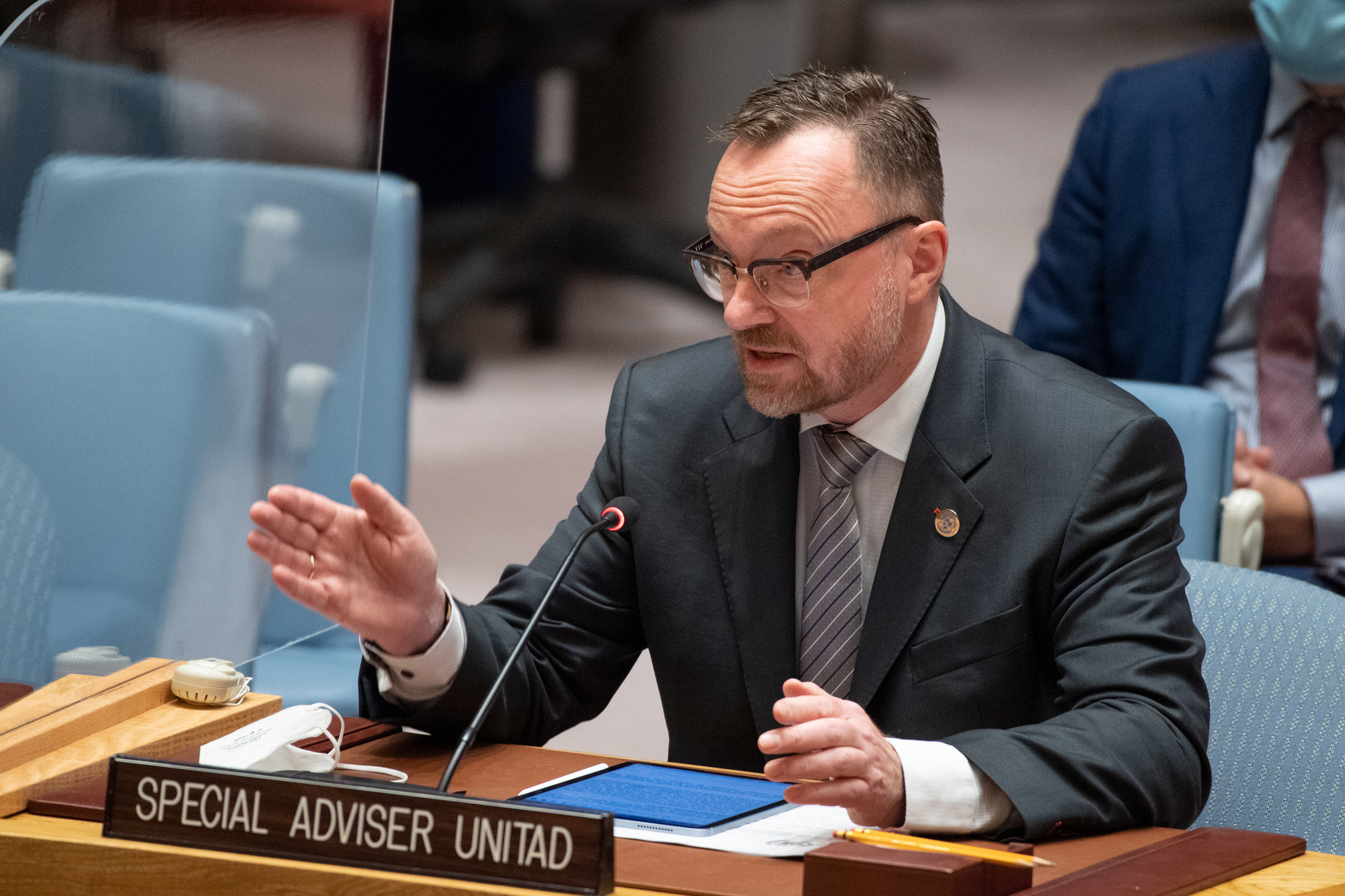Claver Irakoze, who was 11 during the 1994 genocide against the Tutsi in Rwanda, sought refuge at a school in Kabgayi, only to witness government soldiers and militias targeting people for execution. Despite enduring profound trauma, he now speaks out to keep the memory of the genocide alive, advocating for remembrance and education to prevent such atrocities in the future.
Génocide
Since its adoption 75 years ago, the Genocide Convention has played an important role in the development of international criminal law, in holding perpetrators of this crime accountable, galvanizing prevention efforts, and giving voice to the victims of genocide. This year’s event (9 December) focuses on the legacy of the 1948 Agreement. It highlights some of the achievements emanating from the Convention and reminds us of the efforts that led to its drafting and adoption. Genocide is still a threat in the world today and populations around the world remain at risk of this crime.
Henriette Mutegwaraba heard the call that the start of 100 days of genocide that left more than one million people dead over the radio.
“Every time I talk about it, I cry,” she told UN News, describing how propaganda spread messages of hate that sparked a deadly wave of unspeakable violence. She lost 60 family members and friends in the genocide.
Ahead of the UN General Assembly’s commemoration of the International Day of Reflection on the 1994 Genocide against the Tutsi in Rwanda, Ms. Mutegwaraba spoke with UN News about hate speech in the digital age, the 6 January attack on the United States capitol, how she survived the genocide, and how she explained what happened to her daughter.
“On this International Day of Reflection on the 1994 Genocide Against the Tutsi in Rwanda, we mourn the more than one million children, women, and men who perished in one hundred days of horror 29 years ago.” In his message, UN Secretary-General António Guterres pays tribute to the resilience of the survivors and reminds us that “a generation since the genocide, we must never forget what happened – and ensure future generations always remember”. This year’s commemorations take place at UN Headquarters in New York and Geneva along with exhibits in New York and Paris.
Historically, sport brings communities together. Sport helps spread positive messages and contributes to social inclusion and cohesion, strengthening understanding and respect for diversity and reducing stereotypes. This year’s International Day of Commemoration and Dignity of the Victims of the Crime of Genocide and of the Prevention of this Crime (9 December), focuses on the role of sports in promoting peace and inclusion and highlighting ways in which it can champion prevention of atrocity crimes through its work and outreach. Watch live the hybrid-event on 9 December at 11:00 a.m.
To counter the denial and distortion of the Holocaust, UNESCO and the United Nations sought to objectively measure the extent of these phenomena on social networks.
To prevent atrocity crimes, it is critically important to understand their root causes. Crimes, such as genocide and crimes against humanity, are not spontaneous acts. They develop as a process over time, during which it may be possible to identify warning signs, including hate speech targeting specific groups. Therefore, the Office of the Special Adviser on the Prevention of Genocide is the focal point for the implementation of the UN Strategy on Hate Speech.
For this year’s Holocaust Remembrance Day, UNESCO and the World Jewish Congress (WJC) launched a new partnership with the online platform TikTok to tackle Holocaust distortion and denial. TikTok users searching for terms related to the Holocaust, such as 'Holocaust victims' or 'Holocaust survivor', will see a banner at the top of their search results inviting them to visit the WJC and UNESCO website: Facts About the Holocaust. The circulation of false information about the Holocaust is a growing problem online, and not all platforms are taking effective action to curb this harmful trend.
Anne Frank was 13 years old when her family went into hiding to escape persecution of the German Nazi regime. Her personal records of that time have become word famous. Though Anne did not survive the Holocaust, her spirit lived on in her writing, inspiring readers around the world. Her diaries were inscribed on the UNESCO Memory of the World register in 2009. Share this video to support #HolocaustRemembrance and to #EndAntisemitism.
On the eve of the International Day in Commemoration of the victims of the Holocaust, UN News brings us this conversation by Julia Dean from our UN Country Team in Australia and Dr Frances Newell, whose mother and grandfather were part of this network who together with the Schindlers, helped Jews, political dissidents and other persecuted groups, escape the horrors of the Nazi regime.
Survivors of genocide and other atrocities committed by ISIL fighters in Iraq should rest assured that the international community supports them. That’s the message from Christian Ritscher, head of UNITAD, the special UN team investigating these crimes. While it might appear action is slow coming, he said there is no statute of limitations and crimes can be prosecuted “as long as at least one perpetrator is alive.” Mr. Ritscher was in New York recently and spoke to UN News’s Abdelmonem Makki, prior to presenting the latest UNITAD report to the Security Council.
The anniversary of the adoption of the Genocide Convention on 9 December 1948, has become a day to honour the memory of the victims of genocide and to act for the prevention of this crime. This year, the focus is on youth, who are taking action to promote peace and prevent atrocities. The Convention places the obligation to prevent genocide primarily on States, but individuals and organizations across the world have been taking action to promote a culture of peace and nonviolence that includes the respect for diversity and nondiscrimination.
Hate speech is on the rise. Hatred, conspiracy theories and prejudice infiltrate our societies and affect all of us. We are flooded by information - and disinformation - more than ever before both on- and offline. UNESCO and the UN Office of the Special Adviser on the Prevention of Genocide (OSAPG) are convening the Global Multi-stakeholder Forum on addressing hate speech through education.
"I could have gone on a Kindertransport to London, where the British were ready to receive 10,000 Jewish children. But I'm the only child [and my mother is a] widow. She said, ‘No, we’re going to stick together’. So it was a matter of trying to find ways to get out of hell. [...] And strangely enough, at that time in 1938, Hitler just wanted the Jews out. But there was no place to go [...] we heard many, many nations saying, ‘We cannot afford to take in so many refugees’." In this episode of Awake at Night, we meet Rabbi Arthur Schneier; a Holocaust survivor and a human rights activist. UN Secretary-General António Guterres has called him "an inspiration for the world and for the United Nations."
2021 marks the 27th anniversary of the genocide against the Tutsi in Rwanda, one of the darkest chapters in human history. See the virtual memorial ceremony.












